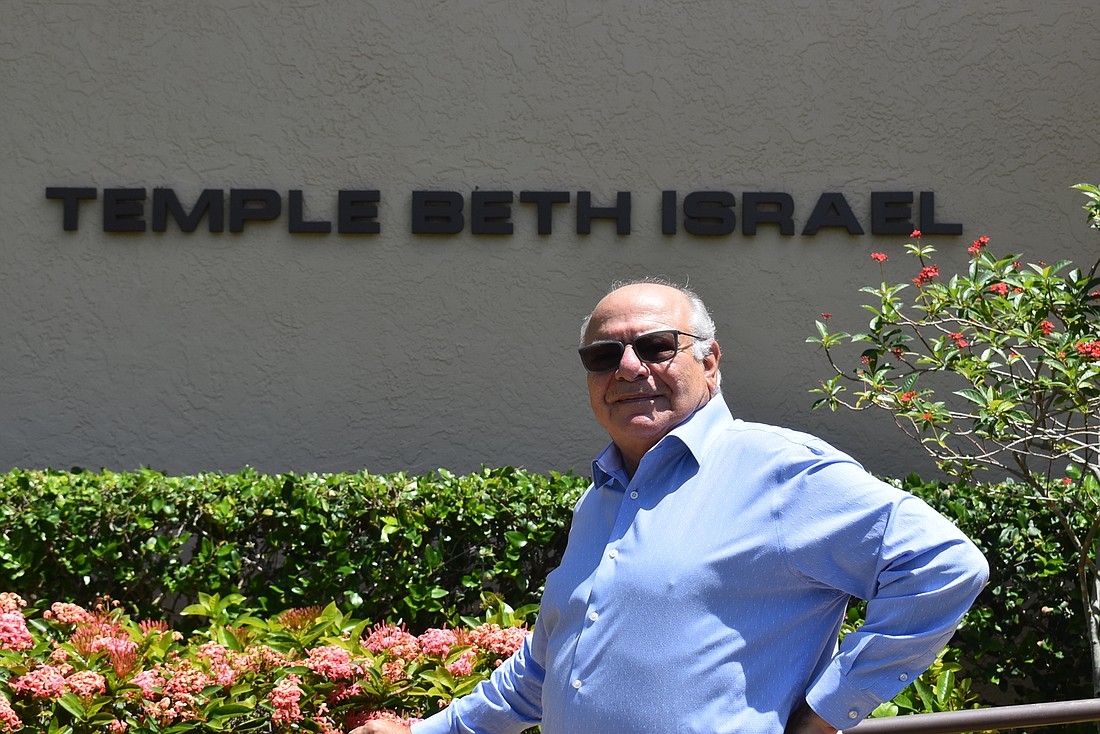- July 26, 2024
-
-
Loading

Loading

Temple Beth Israel is the fourth stop on Marion Levine’s Jewish journey. Her friends and fellow temple members might not have known that if not for a digital gathering, sponsored by the temple on Fridays called "My Jewish Journey.'
In July, 37 of her temple peers joined Levine on Zoom to listen to her story, as told through experiences at each of the temples of which she's been a part. Her story begins in Boston and a temple in Brookline, wound through Massachusetts to Temple Beth Am and Temple Beth Torah and ends up at Temple Beth Israel on Longboat Key.
“When I came to Longboat Key, I wanted to honor my mother’s wishes of living temple life, as it was so important to her in her later years,” Levine said. “I’m happy to say this is my last affiliation and the best. Temple Beth Israel equals home.”
It's the kind of conversation and storytelling that would ordinarily take place in person, before a service or after, or possibly during a temple function. But since the pandemic curtailed such gatherings, Temple Beth Israel executive director Isaac Azerad has been coordinating virtual meetings called My Jewish Journey, as a way for members to meet and get to know each other.
“It’s sort of an organic outgrowth of the need to get together and to learn about each other in a more fundamental way, in a deeper way,” Azerad said. “And of course, the thread between all the stories is that they're all Jewish. I believe that there’s the need to get together in some fashion, you know. Isolation has brought us together on a Friday afternoon at five o'clock to listen to someone's story. I think this is really an unexpected benefit, let's say, of the pandemic.”
On a Friday night in July, Levine told of her childhood shabbat dinners and learning some of the words of kiddush songs incorrectly because of her father's thick German accent. She talked about her three children, the death of her first husband and her life as a widowed mother of three.
Temple members heard her tell of business success, treating herself to a mink coat for a birthday and meeting the late Bernie Levine and their 27-year relationship that brought her to Longboat Key
“Now you know my story,” Levine said. “It’s sad but it made me stronger. I’m a happy camper here on Longboat Key. I hope you know me better and understand me.”
"My Jewish Journey'' grew out of an appetite for temple members to learn more about each other. Originally, Azerad and the temple front office came up with the idea for a cocktail hour before Friday shabbat, but the connection between members was still a bit fuzzy over the computer.
“Someone came to me and said, ‘You know, at our age, people know who we are when we meet, but they don't know who we were in our previous lives. Wouldn’t it be a good idea if we could explore and concentrate on one individual per week?’” Azerad said. “And I said, ‘That's a great idea. Let's call it the Jewish Journey and let's get it started. So we started out seeking those who have what I thought was a unique story to tell. It turns out that everyone has a unique story to tell.”
Azerad recruited a few “Temple famous” people to kick off the program, including former president Murray Blueglass, wife of Rabbi Sniderman, Corrine Sniderman and vice president Levine. It took a couple of weeks for the program to continue, Azerad noted, but once a few folks got rolling, more members volunteered their stories.
“Some people are shy by nature even though they have an amazing story to tell,” Azerad said.
The stories are far-ranging, a warm-hearted and tender reminder that there is no single path. As the stories continue to come in, the popularity had built, often reaching 40 people. After the speaker has told their story, the Zoom opens for discussion. Often, it’s less of a discussion and more an opportunity to thank the speaker and often to reminisce about common experiences or hometowns.
“I think it's going to continue,” Azerad said. “Because of its success, even when we go back to in person gatherings, I wonder if we can turn that into some sort of program based on the same concept, getting to know people more deeply. I don't know what that would look like. But I think this is going to teach us a lot of things to do by the time we're done.”